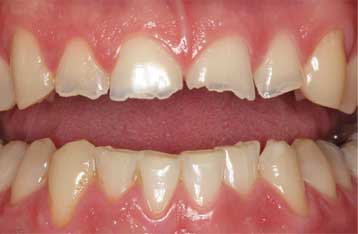Bruxism and Teeth Grinding
Bruxism, or teeth grinding, usually happens at night while you sleep. Most people with bruxism are not aware that they are grinding their teeth in their sleep – unless a partner is awakened by the noise. This habit of bruxism is extremely destructive and in time may wear away your teeth, strain your temporomandibular joint (TMJ), or tire the muscles used in chewing.
Causes of Bruxism
Studies have shown that bruxism tends to be related to stress, and people generate much greater forces when grinding their teeth than they do during normal jaw function. The movements of the jaw during bruxism are more exaggerated than the more limited movement of someone’s normal jaw function.
Bruxism Treatment
Although no cure for bruxism is available, your prosthodontist can produce a device that will protect the teeth, support your TMJ, and provide relief from muscle fatigue. This device has many names, but generally is referred to as a splint. A splint helps with bruxism through careful control of the interaction of your teeth and through providing something else to damage rather than your teeth. Splints can easily be adjusted or replaced, making them a better recipient of these destructive forces.
Locate A Prosthodontist for Bruxism Treatment
To locate a prosthodontist to assist with Bruxism or Teeth Grinding, enter your zip code to the right to get started!
The American College of Prosthodontists maintains a position statement on the Role of Oral Devices in Managing Sleep-disordered Breathing Patients
